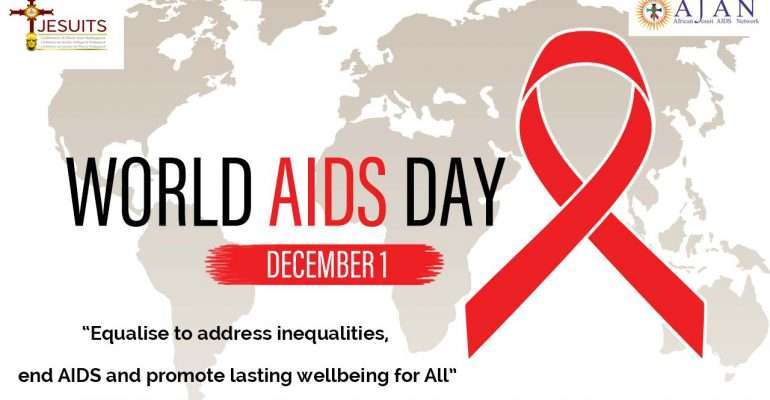During the celebration of this year’s World AIDS Day 2022, with the theme EQUALIZE, the African Jesuit AIDS Network (AJAN) invited young people from schools in different centers in Africa to participate and write an article that speaks young people’s understanding of this year’s theme. In this regard, one GATEKA Aella Sania Stephy A/S 2022-2023, Class 3PFBCST1, Lycée du Saint-Esprit, through Service Yezu Mwiza (SYM) in Burundi presented us with an article that talks about “Let’s work for a equal access to HIV services and ICT opportunities”.
Equality is a principle to be followed everywhere and in everything. Article 6 of the Declaration of the Rights of Man and of the Citizen states that: “The law shall be the same for all”. This means that people living with HIV should be treated equally without any distinction.
HIV among African girls and women especially in Burundi is fueled by numerous gender inequalities that interconnect at the individual, socio-cultural, economic and systemic levels. These gender inequalities, including gender-based violence and intimate partner violence, intensify the physiological vulnerability of women and girls to HIV and block their access to HIV testing, treatment and care services. While HIV is fueled by gender inequalities, it reinforces them by making women more vulnerable to its effects.
In addition, the fact that there may be a power imbalance between men and women means that many women find themselves unable to make decisions about their health. These inequalities are more pronounced for marginalized, migrant and disabled women due to their increased risk of discrimination and violence.
Some of the gender inequalities that fuel the HIV epidemic are: gender-based violence, including child marriage and female genital mutilation, inequalities in power and decision-making, lack of economic empowerment of women, girls’ lack of access to education, information, and discriminatory legal and policy frameworks.
- Let’s fight to eradicate inequalities for people living with HIV.
- That our government is committed to punishing anyone who violates human rights, especially among PLHIV.
- That there are laws governing partners living with HIV.
- That the government always emphasizes risk situations such as inequalities, prejudices, gender inequalities, discrimination, economic barriers, which increase vulnerability to HIV/AIDS.
In addition, communication is one of the ways to fight HIV. We live in a world where technology is developing day by day. Multiple industries continue to manufacture and have communication tools to make this world a better place. So, communication should be one of the tools to help us fight against HIV and inequalities to let everyone have equal access to HIV services.
In some cases, we forget that politics, especially government policy, can play a significant role in creating an environment conducive to positive behavior change. Government policy can be a big influence in HIV control and prevention.
However, the focus on sexual and reproductive health is still light. The messages transmitted or broadcast on the radios are further diluted. Therefore, certain realities are not revealed to the population. Hence the ignorance of certain modes of transmission and prevention of HIV.
What can we do to overcome?
- Government policy should promote a vibrant society, in which the media and the public can express different points of view.
- Messages are transmitted via communication tools to inform the Burundian population, especially about PLHIV on the transmission of HIV and the mode of prevention, and services offered.
- The government should always multiply physical training to give the opportunity to those who do not have the means of communication to acquire knowledge about HIV.
- HIV/AIDS should be seen as a social and development issue. Accordingly, the allocation and distribution of resources to tackle the pandemic must be considered alongside other social and development issues.
Shared by, Fleury NDUWAYO, sj
Project and Programmes Coordinator, Service Yezu Mwiza (SYM), Burundi

